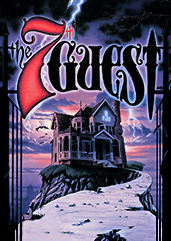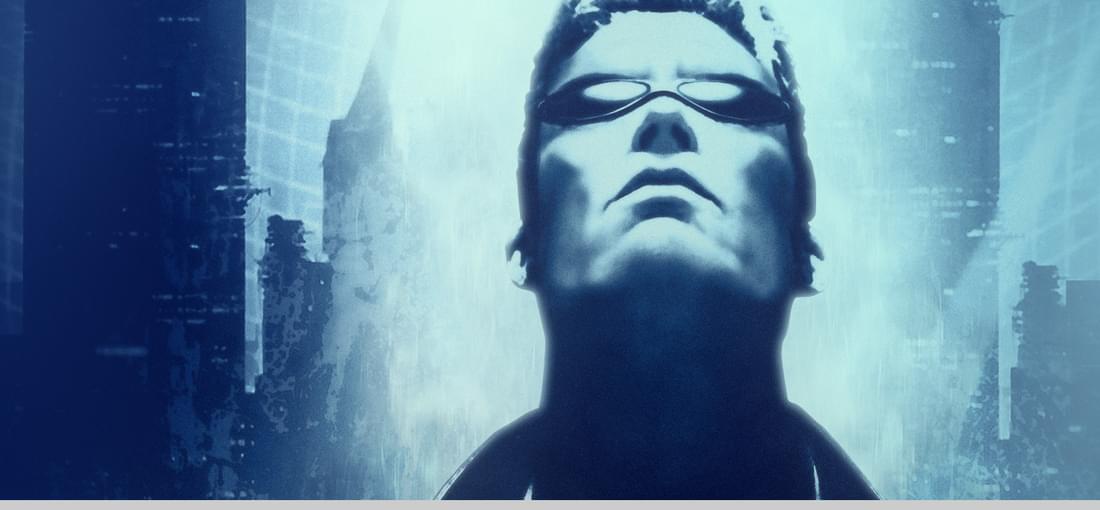

As with most sequels, The 11th Hour suffers from trying to outshine its predecessor by doing something completely different while failing to retain the essence that made the first one great. Instead of relying on the exploration of Stauf’s mansion to tell the story as you witness past events, discover clues, and solve puzzles, the story of The 11th Hour is provided through FMV cut-scenes players unlock by completing puzzles and locating items. The gross majority of these scenes take place outside of the mansion to supply background information on the person you are trying to find and the mystery she was trying to unravel about Stauf. Unfortunately, it disrupts the feeling of being immersed within the story and serves as a constant reminder you are being helped by someone on the outside who could probably call for help at any time. These design changes for the game mechanics and storytelling transitions the series from a suspenseful tale of horror into a detective mystery. --- The 3D rendered graphics are fantastic and make exploring the mansion feel like a whole new experience. It is thrilling to walk around where you’ve been before anticipating what has changed and how, what has stayed the same and why, and what new rooms will you discover. Thematically, searching the house at night using your flashlight is creepy and sets the mood. However, since you cannot control where you shine the light, it also eliminates the opportunity to appreciate how much detail and effort was put into creating each room. You have the option to play the game in black and white, but most of the puzzles remain in color and the juxtaposition is distracting. Moving through the mansion feels awkward when compared to The 7th Guest. Whereas before you would glide from room to room or item to item creating the sense you were physically moving, in The 11th Hour most of your movements snap from one place to another similar to Myst. If there were a time limit on the game (as the title may suggest), then streamlining how the player moves throughout the house would make sense. However, the title is just a gimmick and the eleventh hour has no bearing on your progress through the story. --- Unfortunately, the game suffers the most from the poorly done FMV sequences (the acting and production in Night Trap was better) and shallow plot. The relationship between Carl Denning and Robin Morales is forced and superficial, leaving no reason to believe he would actually go searching for her in the Stauf mansion—why not just call the police. And since the FMV scenes are narrowly focused on the details surrounding Robin’s disappearance, you learn more about the people in town than about Stauf or his mansion. The worst part of the storytelling resides in the multiple endings, which only cause you to wonder “Why did you need to enter the mansion at all?” --- Overall, The 11th Hour transmuted a captivating psychological horror experience into a cheap B-movie with puzzles. If you can look past the bad acting and forced storyline to focus on the puzzles, then you might want to consider this game. Otherwise, purchase and play (or replay) The 7th Guest while Trilobyte continues working on their third installment of this series.

The 7th Guest was a revolutionary development in the history of computer games. It was one of the first games to utilize high quality pre-rendered 3D graphics intertwined with FMV when most titles were relying on hand drawn sprites. The game also provided a mesmerizing soundtrack composed by George "The Fat Man" Sanger (think Wing Commander and Ultima Underworld) and included two live recordings: “The Game” and “Skeletons in My Closet”. The soundtrack was included on the 2nd CD and could be played in any CD Player. The story is an original twist of gothic horror and film noir of the 1930s and 40s, where you are attempting to uncover the mystery behind why you are there, what happened to everyone else, and who is the seventh guest. Actual game play is smooth and seamless as you glide through the mansion by clicking from one room to the next. Entering a new room or location furthers the story by triggering a flashback showing what happened before your arrival, displaying haunting imagery, or providing a cryptic clue. Stauf also serves an ethereal companion who provides enigmatic hints and unrelenting comments about your progress. Staying true to the thematic elements of the game, you unlock pieces of the story by solving puzzles, which open up new areas to explore. Each puzzle is uniquely tailored to fit the theme of the room in which is it found and is designed to be intellectually challenging. This game provides a captivating story that is unapologetic in using adult themes to provide a definitive horror mystery. Anyone who loves H. P. Lovecraft, Richard Matheson, Alfred Hitchcock, or just the experience of being scared-out-of-their-pants should pick this up.

Deus Ex is an innovative First Person RPG that immerses you in a dynamic world that adapts and changes based upon how you play the game. The overall game structure is episodic and each chapter unveils an open environment that provides an unlimited number of choices or methods for completing your objectives. Similar to modern RPGs, NPCs have a life of their own by engaging in dialogue with one another and adjusting their scripted behavior to match your actions or dialogue choices. What you say and do will determine what aspects of the storyline develop or what areas of the map you can access. Even seemingly innocuous decisions can result in major narrative changes later on, and the game designers have anticipated every possible choice or action you could imagine; try and see for yourself. There are enough variety in story telling and multiple endings to keep you coming back to play again and again. The skill and augmentation system allows for each player to customize their character without defaulting to traditional archetypes (though these are also possible to construct). Although you cannot change your skills or augmentations once they are assigned, the game is fluid enough to allow you to modify your play-style and successfully finish it. Aesthetically, the game is littered with information you can find by reading a book, picking up a newspaper, or hacking an email account. These fictional inclusions are mixed together with references from actual literature/philosophy that results in creating an unprecedented sense of reality. While reading everything is unnecessary to completing the game, it significantly enriches the experience and finding all the chapters to “Jacob’s Shadow” is rewarding in itself. The award winning soundtrack reflects the cyberpunk/conspiracy theory atmosphere without ever becoming repetitive or awkward. Even though this game was released in 2000, the political and social commentary is provoking and uncomfortably relevant over a decade later. This is game is not a mindless romp in a sandbox, but an intellectually stimulating experience that rewards you with something new to discover each time you play it. Even if you already purchased this game, buying it again for $9.99 is a steal when considering it doesn’t require a third party software to run and you no longer have to remember where you put the CDs. If you enjoy a game that allows full customization, rewards innovation, tells a compelling story, and provided an unforgettable experience, then this is the game for you.